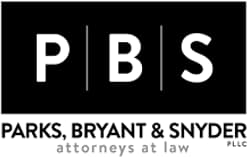Theft crimes can carry legal consequences that could range from relatively minor to severe. Offenses involving stealing someone’s property are considered acts of dishonesty and carry negative connotations that go beyond the legal repercussions. In many cases, a person’s reputation and future occupation could also be placed in jeopardy.
If confronting a charge like this, it is imperative to build the strongest legal defense possible with the help of a criminal defense attorney. A Columbia theft lawyer can provide the experience necessary to analyze the facts of the case and help build a defense strategy tailored to your case. In some cases, the penalties may be mitigated, or the charges may be eliminated altogether.
How Theft Offenses are Categorized
These crimes, based purely on the value of the alleged stolen property, are categorized as either misdemeanors or felonies. Under Tennessee Code Annotated § 39-14-105, the crimes are classified from Class A misdemeanor, when the value of the stolen objects is worth less than $1,000, to Class A felonies where the property that was stolen has a value greater than $250,000. Any crime with a value above $1,000 is considered a felony (Class E through A).
Additional Criminal Charges
Theft crimes can involve an additional criminal act such as trespassing, assault, or battery. Burglary, for example, involves breaking into another person or company’s property without the owner’s permission to steal something. In contrast, robbery involves the use, or threat, of force to steal something.
Violent Charges
It is possible for theft crimes to be categorized as violent if it is committed with violence, the threat of violence, or a weapon. Violent crimes carry additional penalties and are considered aggravated crimes. A guilty verdict for a violent theft results in a felony conviction.
Using Falsified Information
Some theft crimes involve a person falsifying information or abusing a position of power to deprive a person, company, or government entity of money in the interest of their own financial gain. Crimes such as embezzlement fall under the category of fraud but are nonetheless theft crimes.
Forgery, identity theft, credit card fraud, mortgage fraud, healthcare fraud, and bank fraud are all crimes by deceit or coercion. In many cases, these crimes involve property or services whose value far exceeds the misdemeanor threshold and often results in prison time.
Anyone accused of stealing something from another should enlist the help of a qualified Columbia attorney as soon as possible to ensure that their rights and best interests are prioritized.
Penalties for Stealing in Columbia
Misdemeanor crimes can result in fines and some jail time. However, some convicted parties may obtain alternative sentencing, which includes community service and restitution. Often, this requires a seasoned theft crimes attorney in Columbia to make a solid legal argument on behalf of the accused party to lower any penalties they may be facing.
For crimes where the allegedly stolen property exceeds $1,000, convicted parties face lengthy prison sentences and hefty fines. If convicted of a Class E felony, the minimum felony sentence a convicted party may receive is six years in prison and a court-ordered fine of up to $3,000. A Class A felony, the maximum felony sentence, can carry a minimum 15-year prison sentence with a maximum sentence of 60 years and a large fine of up to $50,000.
Connect with a Columbia Theft Attorney Now
A theft crime conviction can cause you to spend a few days in jail or up to decades in prison. Any form of conviction puts a strain on your livelihood and freedom. These offenses can be used against convicted parties for years to deny employment and promotion.
Building a strong legal defense is imperative if your reputation and freedom are on the line due to a theft crime. A Columbia theft lawyer can fight on your behalf. Call our office today to learn more.




